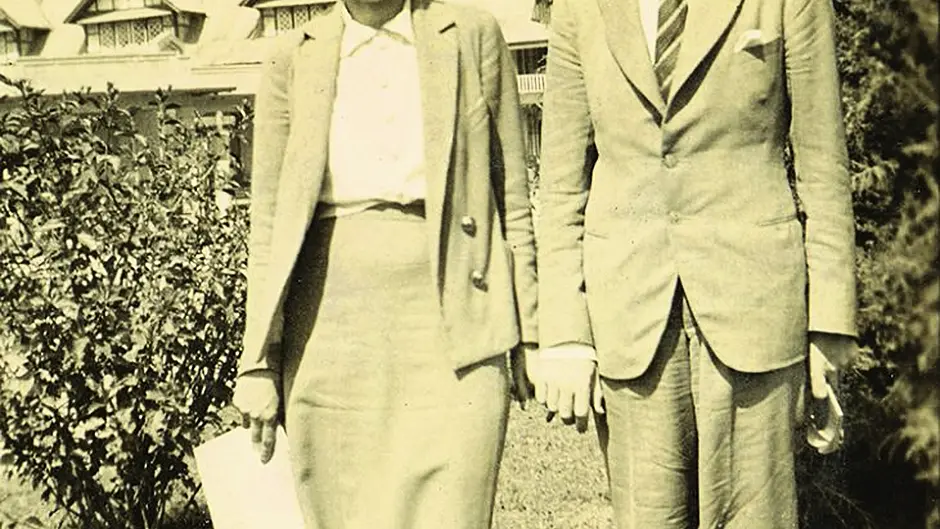Anne Lynch recalls the story of the two sibling doctors who joined WWI in the hope their medical skills would be of use – and had two very different experiences
Anne Lynch recalls the story of the two sibling doctors who joined WWI in the hope their medical skills would be of use – and had two very different experiences
BALLINEEN was a long way from the action when World War I started in the summer of 1914. However, two local brothers, both medical doctors, saw the war as an opportunity to utilise their medical skills.
In doing so, it cost one brother his life, while for the other, it was the start of an illustrious career in the British Empire. The doctors were the Fehily brothers.
Dr Thomas Fehily was the son of Patrick and Margaret Fehily of The Arcade, Main St, Ballineen. Patrick was a prosperous landowner and businessman, operating a drapery and hardware store. His son, Thomas, was born in 1885 and went on to study medicine in Cork and later qualified at the Royal College of Surgeons in Dublin in February 1908.
Following a short period of working in Jervis Street Hospital in Dublin, Thomas went to England where he worked in Devon County Asylum. Subsequently, he moved to the Lancashire County Lunatic Asylum at Rainhill in Merseyside. There, he worked as an assistant medical officer in 1914.
At the outbreak of WW1 Dr Fehily resigned his post at Rainhill and joined the Royal Army Medical Corps. He entered the war in Egypt and served at the Casualty Clearing Stations in Gallipoli and in France before joining the Royal Fusiliers. In March 1918 he was ranked as a medical officer and a captain with the Royal Fusiliers.
During the German Spring offensive of 1918, Capt Fehily was listed on April 10th as being stationed in the Merville area near Ypres. It was here that he was killed, listed missing in action, on April 13th 1918. His body was never recovered and consequently, no grave exists.
His death, however, is commemorated on the War Memorial at Ploegstraat near Ypres. He was 33 when he died.
For Capt Fehily’s younger brother Joseph, the war was a different experience. He was born in 1892 and also studied medicine. At the outbreak of the War, he enlisted in the Royal Navy Medical Service as a medical doctor. Due to sea sickness, he left the RNMS and joined the Royal Army Medical Corps. During 1915/16 he worked as a surgeon at Hastar Hosptial. During this time he was to witness some horrific injuries sustained by the soldiers. Following this, he was promoted to Major and saw out the remainder of the War in France. Unlike his brother, Thomas, Joseph survived the War in reasonable health, which enabled him to pursue a new life and career within the British Empire.
In 1924 Joseph took a post as a government doctor in Hong Kong. This work was mainly as a port health officer and inspector of immigrants. This position was later to prove invaluable to him. In February 1934 Joseph married Dr Lydia Nicolavia and in 1935 he was honoured by King George V when he received the King’s Silver Jubilee medal.
At the outbreak of World War II in 1939, Joseph remained in Hong Kong. When the Japanese took it over in 1942, Joseph and Lydia were interned in the Kowloon Hotel. However, on production of his Irish passport, and because of Irish neutrality, they were released but placed under house arrest. They subsequently escaped to a Chinese port by walking through rice fields for 12 days. There they waited for a British ship and it was here that Joseph’s knowledge of shipping personnel came into play. He and Lydia eventually got a British ship that helped them return to England. His arrival in England was of great benefit to the British as he brought back valuable information on the Japanese forces.
In 1945, after the War, Dr Fehily and his wife returned to Hong Kong, where he continued to hold various government posts. These included a royal appointment as an official member of the Legislative Council of Hong Kong, which he held until his retirement in 1951. In 1947 he received an OBE from King George VI for his services to medicine.
After this auspicious career, Dr Fehily and his wife retired to Estoril near Lisbon. However, he remained in close contact with his remaining family in Ballineen by visiting regularly. He died in Estoril in August 1980.
After Capt Thomas Fehily’s death in 1918, his family donated a stained glass window in his memory to the Church of the Immaculate Conception in Enniskeane. Now, 100 years on, it still stands as a reminder of the sacrifice made by him and all Irish men who served in The Great War.








